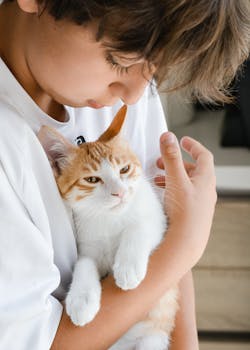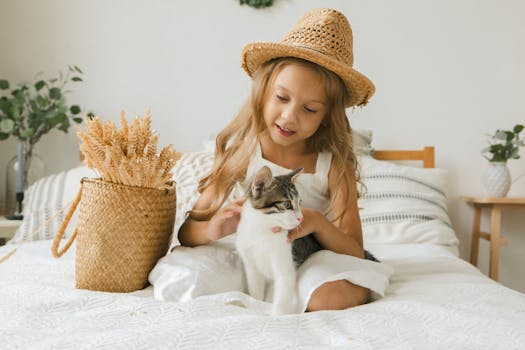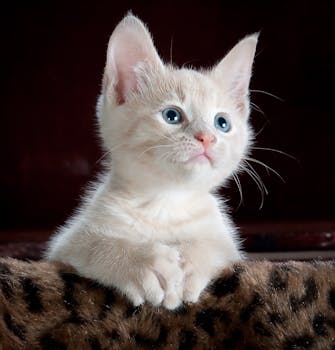
Growing up, our household was never without the pitter-patter of tiny paws, the soft rumble of purrs, and the curious, playful nature of our feline companions. One of my earliest memories is of our family cat, Whiskers, darting around the living room, chasing a ball of yarn with an energy that seemed inexhaustible. Whiskers was an indoor cat, and keeping him entertained was a constant challenge. Back then, cat enrichment was a relatively new concept, and we had to get creative with how we kept him engaged and stimulated.
Fast forward to today, and the landscape of cat care has transformed dramatically. As more and more cat owners understand the importance of mental and physical stimulation for their pets, innovative cat enrichment solutions have emerged to cater to indoor cats. The need to keep indoor cats happy and healthy is paramount, and finding ways to enrich their environment can make a world of difference in their overall well-being.
One of the most fascinating developments in cat enrichment is the advent of interactive toys. These toys are designed to challenge a cat's mind and body, mimicking the hunt-and-capture behavior that cats naturally exhibit. From laser pointers that dart around the room to robotic mice that scurry unpredictably, these toys provide hours of entertainment and exercise. I remember when I first introduced a laser pointer to Whiskers – his eyes would light up with excitement, and he would pounce and chase the elusive red dot, burning off his boundless energy in the process.
Another innovative approach to cat enrichment involves puzzle feeders. These devices make cats work for their food, stimulating their minds and slowing down their eating habits, which is particularly beneficial for cats prone to obesity. Watching Whiskers tackle a puzzle feeder for the first time was both amusing and rewarding. He would paw and nudge at the feeder, figuring out how to release the kibble, his natural hunting instincts kicking in. It not only provided him with mental stimulation but also made mealtime more engaging.
Indoor cats also benefit greatly from vertical spaces. Cats love to climb and perch, and providing them with opportunities to do so can significantly enhance their living environment. Cat trees, shelves, and window perches allow cats to explore different heights, satisfying their natural curiosity and desire to survey their territory from above. I remember installing a cat tree for Whiskers; it quickly became his favorite spot in the house. He would lounge on the top perch, gazing out the window, or playfully bat at the dangling toys attached to the tree.

In addition to physical enrichment, sensory stimulation plays a crucial role in a cat's well-being. Cat-safe plants like catnip, silvervine, and cat grass can be introduced to an indoor environment, providing both olfactory stimulation and a healthy snack. Whiskers would often roll around in delight after a few sniffs of catnip, his playful antics a testament to its stimulating effects. Similarly, cat-friendly herbs like mint and parsley can be grown in small pots, offering an engaging and safe way for cats to indulge their senses.
Social interaction is another key element of cat enrichment. While cats are often seen as independent creatures, they still require social engagement with their human companions. Regular play sessions, grooming, and simply spending time together can strengthen the bond between a cat and its owner. I fondly recall the evenings spent with Whiskers curled up on my lap, purring contentedly as I stroked his fur. These moments of connection were not just enjoyable for him but deeply fulfilling for me as well.
Furthermore, the use of technology in cat enrichment has opened up new possibilities. Cat-specific apps and videos, designed to capture a cat's attention, can be used to engage their curiosity. These digital toys often feature moving objects, birds, or fish that cats can "hunt" on a screen. While Whiskers was a bit skeptical of the tablet at first, he soon became intrigued by the moving images, pawing at the screen with fascination.
Environmental enrichment also includes creating a safe and stimulating outdoor experience for indoor cats. Catios – enclosed patios for cats – allow them to experience the outdoors safely. These structures provide fresh air, new smells, and the sights and sounds of nature without the risks associated with free roaming. I had always wished I could give Whiskers a taste of the outside world without compromising his safety, and a catio would have been the perfect solution.
Lastly, regular rotation of toys and enrichment activities is essential to prevent boredom. Introducing new toys, rearranging furniture, or even setting up a new play area can keep things fresh and exciting for indoor cats. Whiskers always enjoyed exploring new additions to his environment, and I found that even small changes could reignite his curiosity.
Incorporating innovative cat enrichment for indoor cats is not just about keeping them occupied; it's about enhancing their quality of life. By providing a stimulating environment, interactive toys, puzzle feeders, vertical spaces, sensory experiences, social interaction, and safe outdoor exposure, we can ensure our feline friends lead happy, healthy, and fulfilled lives. Looking back, I realize that every effort we made to enrich Whiskers' life was rewarded tenfold with his joy, health, and the deep bond we shared. Today's cat owners have an array of tools and resources at their disposal to keep their indoor cats thriving, making it easier than ever to ensure they are truly feline fine.
Ready to Make Your Indoor Cat Feline Fine?
Discover the ultimate enrichment ideas that will keep your indoor cat happy, healthy, and engaged. From interactive toys to sensory experiences, transform your cat's world today! Don't wait—click here to explore the best enrichment solutions for your furry friend and see the difference it can make in their life. Your cat deserves the best, so let's get started on their journey to being feline fine!
